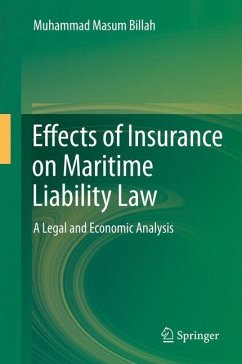The book examines how the absence of insurance in the past led to some special maritime liability law principles such as 'general average' (i.e., losses or expenses shared by all the parties to a maritime adventure) and the limitation of shipowners' liability. In the absence of insurance, these principles served the function of insurance mostly for shipowners. As commercial marine insurance is now widely available, these principles have lost their justification and may in fact interfere with the most important goal of liability law i.e., deterrence from negligence. The work thus recommends their abolition. It further argues that when insurance is easily available and affordable to the both parties to a liability claim, the main goal of liability law should be deterrence as opposed to compensation. This is exactly the case with the maritime cargo liability claims where both cargo owners and shipowners are invariably insured. As a result, the sole focus of cargo liability law should be and to a great extent, is deterrence. On the other hand in the vessel-source oil pollution liability setting, pollution victims are not usually insured. Therefore oil pollution liability law has to cater both for compensation and deterrence, the two traditional goals of liability law. The final question the work addresses is whether the deterrent effect of liability law is affected by the availability of liability insurance. Contrary to the popular belief the work attempts to prove that the presence of liability insurance is not necessarily a hindrance but can be a complementary force towards the realization of deterrent goal of liability law.
Bitte wählen Sie Ihr Anliegen aus.
Rechnungen
Retourenschein anfordern
Bestellstatus
Storno








